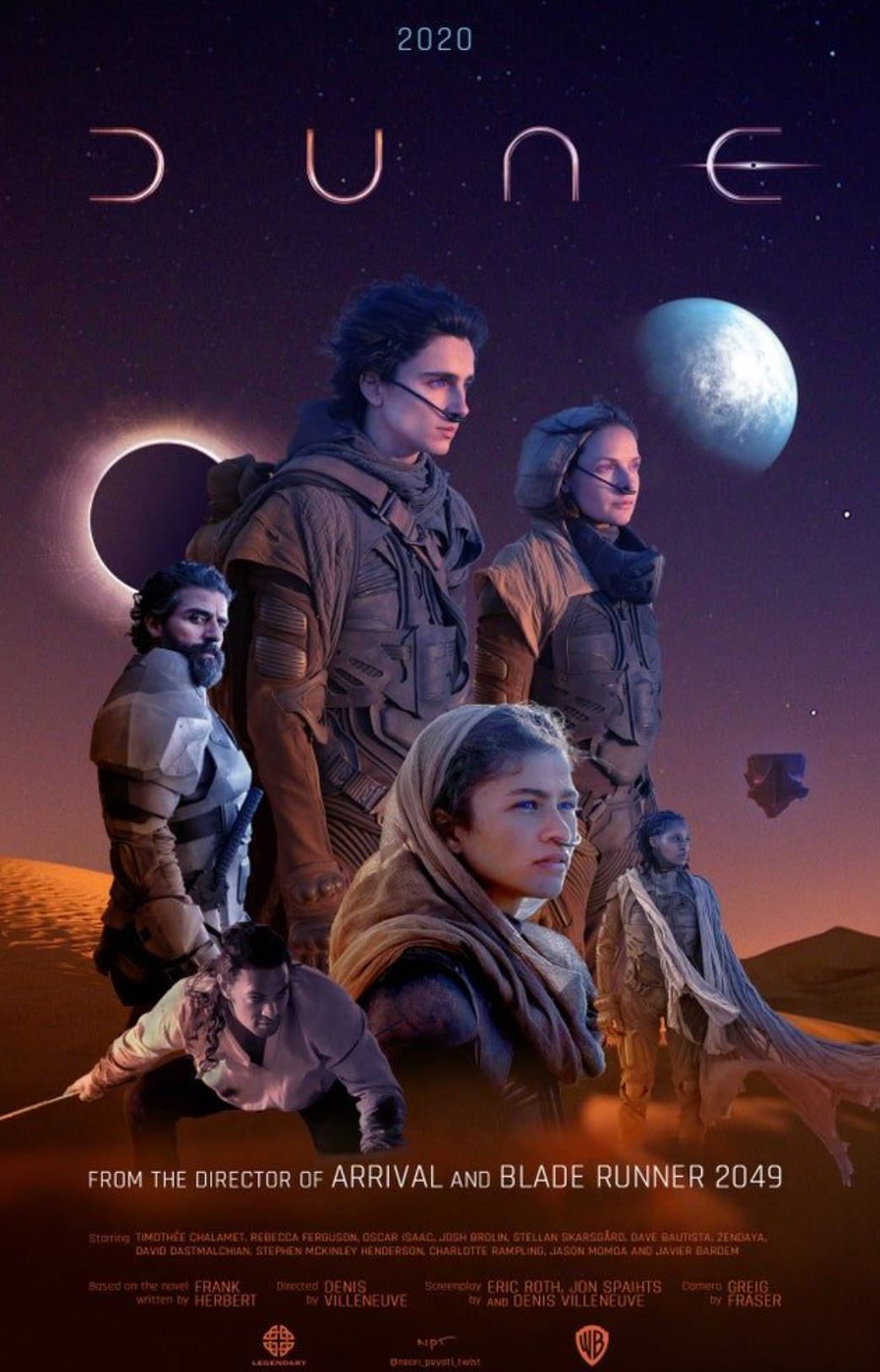Warner Brothers Drops a Bombshell



Yesterday, Warner Brothers dropped the absolutely gobsmacking news that in 2021 they will release ALL of their movies day-and-date with streaming and theatrical. That’s right, ALL of their 2021 movies will drop on HBO Max the same day they open in theaters, including Judas and the Black Messiah, King Richard, In The Heights, The Suicide Squad, Godzilla vs. Kong, Dune, and The Matrix 4. No film will be spared for any reason, the entire 2021 Warners slate is going to streaming. It’s the same deal they worked for Wonder Woman 1984: films will play on HBO Max for one month while running concurrently in theaters. This only pertains to the US releases, internationally their films will roll out in theaters as per usual (because the rest of the world still have movie theaters to play them). Not sure what this means for Canada, though, which is usually lumped in with the US for “domestic” releases, but does not yet have HBO Max. (Lainey: here in Canada, a lot of HBO content is available on Crave but we do not yet know what yesterday’s WB announcement will mean for us here.)
Obviously, this is a tremendous, paradigm-shifting moment in what has been a devastating year for movie theaters. A major movie studio committing their entire slate to streaming like this is unprecedented, and no one knows if this is brilliant or dumb as sh-t. The COVID situation in America is bad, and even with a vaccine in view it will likely be months, if not well into next year, before we’re back to anything “normal”. At least with this plan, Warners won’t have to push back any more film dates, they can just release movies into whatever international markets are open and rely on HBO Max for domestic viewers. Ann Sarnoff, chair of WarnerMedia, calls this a “unique one-year plan” but let’s be honest, once viewers get used to seeing the big movies at home, that’s a bell that can’t be un-rung—the exact fear plaguing exhibitors this year.
There’s a lot to unpack here, but right off the top let’s establish that this has very little to do with the pandemic. Oh, it’s a factor, but really, it’s mostly an excuse. One thing I have heard all year from within the halls of Warner Brothers is that the AT&T overlords don’t understand—or even seem to LIKE—the theatrical business. Every date delay costs money, adding to already exorbitant budgets; meanwhile, Warners is sitting on streaming technology that massively benefits AT&T in ways theatrical releases do not. (Data, it’s all about that sweet, sweet data.) Not utilizing HBO Max for delayed releases, especially when no one really knows when the US box office will bounce back, was a source of much friction between Warners and their telecom bosses. This move to put everything on HBO Max, and thus generate that precious data, will undoubtedly make the AT&T brass happy, even as it is crushing to production partners like Legendary, who can’t be happy to see a movie like Godzilla vs. Kong go to small(er) screens.
And it will be a MASSIVE injection of attention and, hopefully, viewers to HBO Max. Wonder Woman 1984 was already going to give that platform a big boost, but now Warners should have an edge on competitors Disney (who are stingy with their top releases on streaming) and Netflix (who have made nothing the size of a Dune or Matrix 4). I’ve mentioned before that HBO Max is off to a slow start, but with an entire year’s worth of massive programming coming to their platform, they should see considerable subscriber growth and really become competitive with Netflix and Disney (the biggest, most-likely-to-succeed streamers). However, they then have to MAINTAIN that growth which will mean satisfying an audience now used to having huge blockbusters in the convenience of their homes, and we’re right back to the issue of un-ringing this bell.
Which brings us to the future of movie theaters. They’re not dead yet but they will certainly never be the same. Even though this move is all about streaming, it also brings us one step closer to the world in which movie studios own movie theaters, and your trip to the movies is a complete themed experience for that specific brand of cinema. On January 1, 2022, movie studios will be able to buy theaters since the Paramount Decree has ended, and while that sounds far away, there are rumors Amazon is already preparing a buyout for AMC. Once that sundowning period on the Paramount Decree ends, things are going to move fast. And theaters, already hobbled by the pandemic, might be totally crippled by 2022—stocks plummeted after the Warners news broke yesterday—which will just pave the way for faster acquisitions by studios.
There is optimism that theatrical business will bounce back once a vaccine has been widely distributed, and I don’t doubt there will be a period of joyous return to movie theaters. It just won’t be sustainable. Before the pandemic, average moviegoers only went to theaters 3-4 times a year. Rising ticket prices, stagnant wages, and an eroding audience experience were making moviegoing less of a regular activity and more of a special treat. There is no reason to think ANY of that will change post-pandemic, especially in a world where it is likely many people will be watching their wallets after a tough financial year. HBO Max is on the expensive end of the streaming spectrum ($15.99/month) but it comes with every new Warner Brothers movie, plus all of HBO, Cartoon Network, Turner Classic Movies, and the Warners archive, AND you don’t have to pay for parking, concessions, or babysitters. To many people, that will seem like a bargain.
Even as people start returning to theaters, there will be major new releases available at home. You could go see Black Widow in theaters, and elect to stay home for The Suicide Squad, and this is the habit I expect to see audiences develop. Average moviegoing will likely drop, in the long run, and average streaming hours will rise. This shift was happening before the pandemic, COVID just sped it up. And now Warner Brothers is hastening the demise even further, by creating conditions where people will EXPECT blockbuster movies to be available day-and-date at home. It puts pressure on other studios to either take a stand or swing the wrecking ball even harder.
It will be difficult for other studios, especially the ones with in-house streaming services like Disney+, to defend not releasing new movies this way if the vaccine rollout is slower than expected. Once people get used to a convenience, it is basically impossible to take it away. Having a steady diet of major new releases at home is a convenience audiences will be loathe to give up, they will only want more of it. Movie theaters aren’t dead, and they’ll always be around in some form or another, but there is no question that in the next few years, we’re going to see a massive shift to streaming as the dominant medium for film. And it’s Warner Brothers, who began the pandemic as the great defender of theaters – they are, after all, Tenet’s studio, and Tenet tried to be the last movie standing in theatres – dealing the fatal blow.

